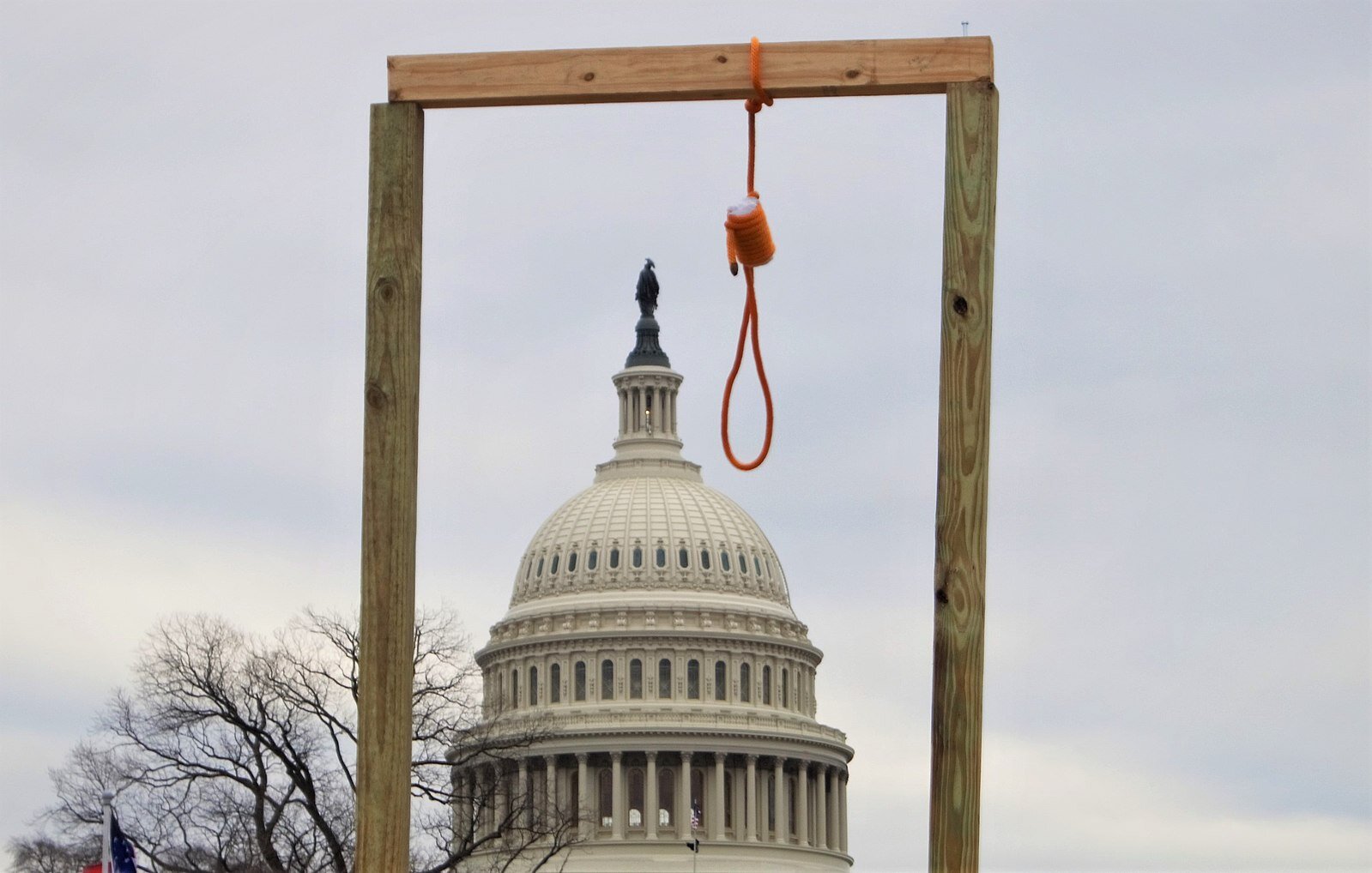
What did Trump know and when did he know it?
The single article of impeachment against former President Donald Trump accuses him of: “inciting violence against the government of the United States.”
In that article, there is a brief discussion of Trump’s conduct before January 6th and his words during the speech he delivered on that day. The question now is whether he committed treason, bribery, or other ‘high crimes and misdemeanors.’
By referencing treason and bribery, the framers were telling us what type of ‘high crimes and misdemeanors’ they had in mind: those that threatened the functioning of the state.
In answering that question, I find most illuminating not what Trump said or did before January 6th, or his remarks on that day, but rather, what came immediately thereafter.
The timeline tells you all you need to know.
First, the date. Why hold a rally on January 6th? Because that was the day Congress was to perform an important but perfunctory role in certifying the electoral college results. To hold a rally on, say, January 5th or January 7th would not have carried the prospect of stopping that process.
Then there is the timing of his speech. Trump was to begin speaking earlier in the day, but instead, he began at 11:55 pm. Perhaps this was to make it so his remarks would conclude just as the Senate convened.
Thereafter on the 6th, ask yourself: Was Trump glad or sad that the capital was invaded?
Shortly after 1:00 pm, just as Trump was finishing his speech on the ellipse, protesters were pushing through barriers along the perimeter of the Capitol.
At 1:49 p.m., Trump tweeted a link to a video of his remarks from the ellipse.
At 2:12 p.m., rioters breached the capitol building, entering through a shattered window on the first floor. It had been about an hour since Trump finished his speech, but publicly he said nothing about the mayhem.
As the violence escalated, at 2:14 p.m., Vice President Mike Pence was ushered off the Senate floor into a holding area inside a nearby office.
Still, there was no public condemnation from the Commander-In-Chief.
Instead, sometime between 2:00 and 2:15 p.m., Trump accidentally called Senator Mike Lee while trying to reach Senator Tommy Tuberville in an attempt to get the new Senator from Alabama to continue objecting to the election results to buy time.
On Wednesday, Tuberville revealed that he told Trump that Pence had been taken out of the senate for his own safety. The information from Tuberville is very significant. It demonstrates that Trump knew of the danger to the Congress, the Vice President, and others and failed in his duties to:
-
Take all steps to urge the rioters to stop;
-
Take care that the laws be obeyed;
-
And as Commander-In-Chief, to use force to protect the nation and its citizens.
This conduct also is probative of his intention to cause violence when minutes earlier he urged these same people to fight.
When Trump finally did tweet, it was to criticize Pence. At 2:24 p.m., he tweeted that Pence “didn’t have the courage’ to overturn the election.”
During the attack, President Trump was also engaged in a shouting match over the phone with House Minority Leader Kevin McCarthy. Though we don’t know the exact time this occurred, lawmakers who were briefed on the call by McCarthy quote the President as saying:
“Well, Kevin, I guess these people are more upset about the election than you are.”
As rioters broke into his office, a furious McCarthy reportedly begged Trump to call off his supporters, to no avail.
The Trump-McCarthy exchange is evidence of Trump’s state of mind. He knew – and approved of – his supporters rioting.
The violence continued. Members of Congress were running and hiding for their lives. Capitol police officers were being beaten and overwhelmed. At the White House, the clock ticked.
Finally, at 2:38, Trump tweeted:
“Please support our capitol police and law enforcement. They are truly on the side of our country. Stay peaceful!”
That public comment came more than 90 minutes after the mayhem began.
Yesterday, during the question-and-answer period, Senators Murkowski and Collins asked the critical question: What did Trump know and when did he know it?
van der Veen: The House Managers have given us absolutely no evidence to answer that question. We’re able to piece together a timeline, and it goes all the way back to December 31st, January 2nd, there is a lot of interaction between the authorities and getting folks to have security beforehand. On the day, we have a tweet at 2:38.
It was certainly some time before then. With the rush to bring this impeachment, there’s been absolutely no investigation into that.
And that’s the problem with this entire proceeding. The House Managers did zero investigation. The American people deserve a lot better than coming in here with no evidence, hearsay on top of hearsay, on top of reports that are of hearsay. Due process is required here and that was denied.
That’s a non-answer.
Lawyers and academics can debate whether the constitution permits the trying of a former president, or the meaning of Brandenberg, or whether Trump’s words and actions rise to the level of a high crime or misdemeanor…
…But it doesn’t take a law degree to comprehend the tik-tok of what happened on January 6th.
Only an arsonist lets a fire burn.
At 3:13 he tweeted again, asking rioters to “remain peaceful,” but refrained from telling them to go home.
Finally, at 3:36 pm, he dispatched the national guard. That was after he initially resisted doing so, a source told CNN.
Even when, at 4:17 p.m. Trump tweeted a hastily recorded video, he repeated false statements about the election and said this:
“You have to go home now.” “We love you, you’re very special.”
The Capitol was secured at 5:40 p.m., and at 6:01 p.m., Trump tweeted:
“These are the things and events that happen when a sacred landslide election victory is so unceremoniously & viciously stripped away from great patriots who have been badly & unfairly treated for so long. Go home with love & in peace. Remember this day forever!”
Apply your common sense and ask yourself: Was Trump glad or sad that the Capitol was invaded?
It’s really all you need to know when determining how this should end.
______________________________________________________________________________________________________________________

Michael Smerconish
Using the perfect blend of analysis and humor, Michael Smerconish delivers engaging, thought-provoking, and balanced dialogue on today’s political arena and the long-term implications of the polarization in politics. In addition to his acclaimed work as nationally syndicated Sirius XM Radio talk show host, newspaper columnist, and New York Times best-selling author, Michael Smerconish hosts CNN’s Smerconish, which airs live on Saturday at 9:00 am ET.
______________________________________________________________________________________________________________________






